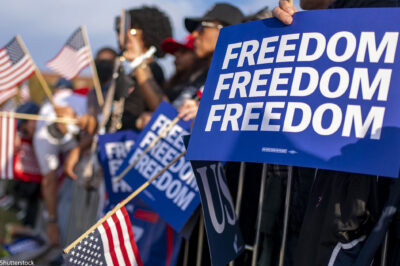When Ronnie Lee Gardner is strapped into a chair early on Friday morning, and a hood is placed over his head and a small white target is pinned over his heart, the citizens of Utah — and indeed the entire country — will be reminded in the most graphic of fashions of the nation's ongoing adherence to the barbaric, arbitrary and bankrupting practice of capital punishment.
While executions in the United States are generally carried out largely under the radar and absent much fanfare or media attention — most Americans might be surprised to learn that a death sentence is carried out almost every week, and that 27 people have been put to death in the U.S. already this year alone — the brutal nature of Gardner's planned killing by firing squad has resulted in it being unavoidably high-profile.
Just after midnight Friday — unless Gardner receives a last-minute reprieve — five anonymous men, each carrying identical .30-caliber rifles, will stand about 25 feet from Gardner behind a wall cut with five gun ports. And after receiving the order of "Ready, aim, fire" they will carry out just the third execution by firing squad in Utah — or anywhere else in the U.S. — since 1976, and the first since 1996. It is a practice so brutal that even Utah's state legislature outlawed the practice in 2004, though it left the option available to prisoners who were condemned prior to the legislative action.
One of the rifles aimed at Gardner will use an "ineffective" round. There is no greater symbol of the deep-seeded moral ambiguity we as a society feel about capital punishment than the use of this blank, which is intended to allow each squad member to reassure themselves that they were not necessarily the one who killed Gardner. If we are so sure that capital punishment is morally acceptable, why is this blank necessary?
But as savage and inhumane as Gardner's execution will be, we cannot let it shroud the systemic injustices and inequities that plague every other execution that takes place in this country, and which delegitimizes the death penalty system in Utah and across the nation.
The reality is that those who receive death sentences and are ultimately executed are merely casualties of an unequal system of justice. In Utah and across the country, decisions about who lives and who dies are largely dependent upon the skill of their attorneys, the race of their victim, their socioeconomic status and where the crime took place. Such infrequent, arbitrary and discriminatory administration of the death penalty is the very definition of a failed system.
The planned execution of Gardner crystallizes the arbitrary nature of the death penalty. Indeed, being executed in this country is akin to being struck by lightning — that's how randomly death sentences are carried out in Utah and the rest of America, regardless of the heinousness of any particular crime that a condemned prisoner is accused of. Nationally, only two percent of murderers ever end up being put to death, and in Utah that number is even lower. The state of Utah has only executed six people in the past 35 years — four of whom chose to waive any and all remaining appeals available to them and volunteered to be put to death — and the state hasn't carried out a single execution in over 11 years. There are currently 10 people on the state's death row.
Additionally, like taxpayers in other death penalty states, Utah's taxpayers are wasting millions of dollars every year to prop up a system in which a few randomly selected individuals receive the death penalty. Instead, we can condemn the worst offenders to permanent life imprisonment, a severe, swift, certain and much more cost-effective punishment that serves our shared priorities of punishing offenders and protecting society.
The high-profile nature of Gardner's impending execution provides all of us with an opportunity to take stock of the impact of the vast failures in our death penalty system. The systemic injustices of the system have, in the past three years, compelled three states — New York, New Jersey and most recently New Mexico — to replace the death penalty with permanent imprisonment. In fact, New Mexico is the 15th state without the death penalty and the first in the continental western U.S. Utah should join them.




